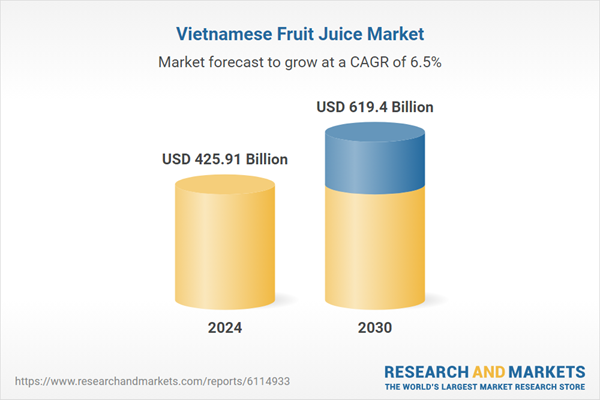Speak directly to the analyst to clarify any post sales queries you may have.
10% Free customizationThis report comes with 10% free customization, enabling you to add data that meets your specific business needs.
This trend is expected to continue driving market expansion. According to a leading global consulting firm, in the next 10 years, 37 million additional individuals in Vietnam will join the consumer class (spending at least USD11 per day). Also, according to the online portal of the Ministry of Construction, Vietnam is one of the fastest-urbanizing countries in East Asia. As of September 2022, it’s estimated there are 888 urban areas across the country, with an urbanization rate of roughly 41.5 percent.
Key Market Drivers
Rising Health Awareness Among Consumers
Vietnamese consumers are increasingly prioritizing health and wellness, which is a key driver of the fruit juice market. As people become more informed about nutrition and the benefits of natural ingredients, they are shifting away from sugary sodas and artificial drinks to healthier alternatives. Fruit juices, especially those that are 100% natural and free from additives, are seen as nutritious options rich in vitamins, antioxidants, and hydration. This rising health consciousness is particularly strong among younger consumers and urban dwellers who have better access to information and health education.Additionally, concerns about lifestyle diseases such as diabetes and obesity are prompting consumers to choose beverages that contribute positively to their overall well-being. Nearly 50% of Vietnamese consumers lead active lifestyles, with the Mekong Delta region at 65% among 35-44-year-olds. This boosts demand for health supplements, fitness equipment, and personalized fitness apps. Consumers face stress about twice weekly, especially younger and busy groups. While 68% rate their mental health positively, interest is growing in meditation apps and counseling. Monthly spending on health products averages around USD 59, driven mainly by ingredient quality (80%) and brand reputation (70%).
Key Market Challenges
Intense Competition and Market Saturation
Vietnam's fruit juice market faces significant competition from imported juices, particularly from countries like Thailand, China, and other Southeast Asian neighbors. These imported products often benefit from more advanced production technology, stronger brand recognition, and sometimes lower costs due to economies of scale. Vietnamese consumers, especially in urban areas, tend to trust international brands for perceived higher quality and safety standards. This puts domestic producers under pressure to improve product quality, packaging, and marketing strategies while managing costs effectively. Additionally, tariff policies and trade agreements sometimes make it easier for imports to flood the local market, reducing shelf space and consumer attention for local juices. Domestic companies must invest heavily in innovation and brand building to compete, which can be difficult for smaller producers with limited resources.Key Market Trends
Shift Towards Health-Conscious and Functional Beverages
Vietnamese consumers are increasingly prioritizing health and wellness, leading to a surge in demand for fruit juices that offer nutritional benefits beyond basic hydration. This trend is characterized by a growing preference for products that are low in sugar, free from artificial additives, and enriched with functional ingredients such as vitamins, minerals, and antioxidants.For instance, juices fortified with vitamin C, fiber, or probiotics are gaining popularity among health-conscious individuals seeking to boost immunity and overall well-being. The market is also witnessing the rise of plant-based and organic juice options, catering to consumers who are more discerning about the quality and sourcing of their food and beverages. This shift is prompting manufacturers to innovate and reformulate their products to align with these health trends, ensuring they meet the evolving preferences of the Vietnamese market.
Key Market Players
- Vinamilk (Nam Viet Foods & Beverage)
- Tan Hiep Phat Beverage Group
- Coca-Cola Vietnam
- Suntory PepsiCo Vietnam Beverage
- Nestlé Vietnam
- RITA Food and Drink Co., Ltd.
- Tan Do Beverage
- Giavico International Food Co., Ltd.
- Nafoods Group JSC
- Lavifood JSC
Report Scope:
In this report, the Vietnam Fruit Juice Market has been segmented into the following categories, in addition to the industry trends which have also been detailed below:Vietnam Fruit Juice Market, By Product Type:
- 100% Fruit Juice
- Juice Drinks
- Concentrates
- Powdered Juice
- Others
Vietnam Fruit Juice Market, By Sales Channel:
- Supermarkets/Hypermarkets
- Convenience Stores
- Specialty Stores
- Online
- Others
Vietnam Fruit Juice Market, By Region:
- Northern
- Southern
- Central
Competitive Landscape
Company Profiles: Detailed analysis of the major companies present in the Vietnam Fruit Juice Market.Available Customizations:
With the given market data, the publisher offers customizations according to a company's specific needs. The following customization options are available for the report.Company Information
- Detailed analysis and profiling of additional market players (up to five).
This product will be delivered within 1-3 business days.
Table of Contents
Companies Mentioned
- Vinamilk (Nam Viet Foods & Beverage)
- Tan Hiep Phat Beverage Group
- Coca-Cola Vietnam
- Suntory PepsiCo Vietnam Beverage
- Nestlé Vietnam
- RITA Food and Drink Co., Ltd.
- Tan Do Beverage
- Giavico International Food Co., Ltd.
- Nafoods Group JSC
- Lavifood JSC
Table Information
| Report Attribute | Details |
|---|---|
| No. of Pages | 82 |
| Published | July 2025 |
| Forecast Period | 2024 - 2030 |
| Estimated Market Value ( USD | $ 425.91 Billion |
| Forecasted Market Value ( USD | $ 619.4 Billion |
| Compound Annual Growth Rate | 6.5% |
| Regions Covered | Vietnam |
| No. of Companies Mentioned | 10 |









